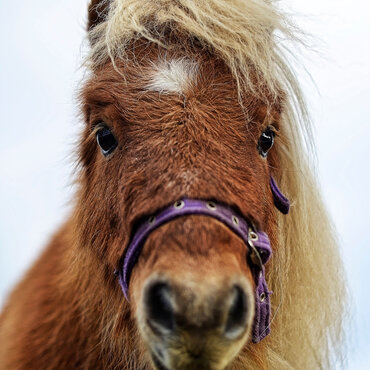Franklin Vets
Franklin Vets - excellence in veterinary care for dairy, farming, lifestyle, equine and household pets. BESTPRACTICE ACCREDITED NZ.
Your account is powered by Storbie. To edit your profile visit my.storbie.com
Your account is powered by Storbie. To edit your profile visit my.storbie.com

A lighter body condition may just need an increase in its caloric intake but may also be an indicator of poor utilization of feed. In Mini’s this is often due to a dental problem limiting the initial breakdown of food before it is swallowed. Dental problems are common in Minis as their teeth are relatively large – almost the same size as a full-sized horse’s teeth! It is important that they are examined with a dental speculum (gag) so that all the teeth can be seen and felt.
The other common reason for low body weight is a worm burden. A fresh faecal sample sent to the lab to measure egg numbers is a useful check, though it is recommended that all horses are wormed going into winter to reduce small strongyle larval numbers, kill bot larvae before they leave the horse and hibernate in the ground to emerge as bot files in the summer and remove tapeworms.
When you are having that cuddle also pay close attention to how the skin is feeling. With a lot of rain followed by warm sunshine, it is not uncommon for us to see “rain scald”. This is dermatitis (skin infection) due to the normal skin bacteria gaining access to the deeper layers of the skin after it has been softened by the rain. Usually, this can be controlled with medicated washes e.g. iodine, but occasionally will need antibiotics and anti-inflammatory medication.
Another common problem we see in winter is lice. If your horse starts enjoying their scratches more or is rubbing against fences or other objects in the paddock have a look at the base of the mane for lice – they look a bit like small crawling sesame seeds. Discuss with your vet the best treatment for your horse – there are powders, sprays and pour-on products available to control lice. Remember they will transfer from horse to horse through direct contact or via brushes, blankets and tack so usually, all horses will need to be treated.
Dr Catherine Pemberton BVSc
Franklin Vets - excellence in veterinary care for dairy, farming, lifestyle, equine and household pets. BESTPRACTICE ACCREDITED NZ.



